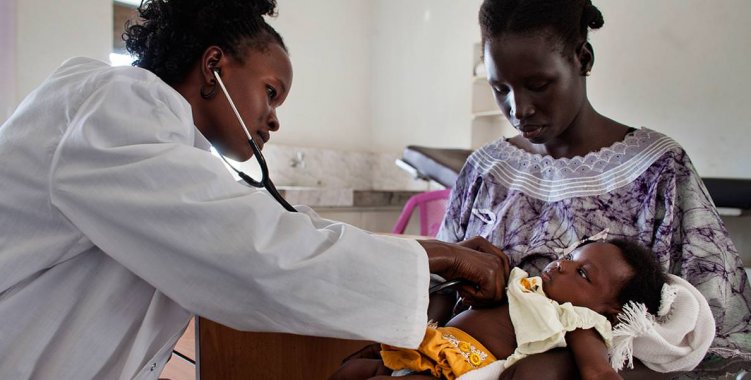The information was provided by the Secretary of State for Public Health, Franco Mufinda, during the opening of a training workshop on the Mapping of Risks with Impact on Public Health, funded by the World Health Organization (WHO), which started on Tuesday in Luanda.
At the opening of the workshop, the governor stressed the importance of training at a time when the country is dealing with many events, including malaria, which remains a public health problem, as well as dengue, cholera or measles, recurring events in Angola.
"Thus, it is imperative that an effort be made to guarantee the health of the population as a key element for the reduction, on one hand, of poverty and, above all, the socioeconomic development that is intended," he said.
According to Franco Mufinda, the seminar will address the strategic issue of emergency situations, strengthening the epidemiological and laboratorial surveillance, diagnosis and promotion, prevention, treatment and rehabilitation interventions.
The governor pointed out that the emergency situations of the aforementioned diseases require the support of a network of laboratories for accurate epidemiological diagnosis or even a support of diagnostic tests applicable in all health units, in the national health service, at the first level, where the demand is 80 percent of the population.
"The emergency situations experienced in recent decades in our country have allowed us to draw lessons from them that can advise us to be increasingly trained and mobilized to detect, notify, and respond early to the emergence of emerging and re-emerging diseases," he stressed.
Franco Mufinda stressed that "there must be no failures" in order to guarantee national security in terms of health, so it is necessary to continue to give priority to the permanent training of the cadres at all levels, "a fundamental element for the construction of a resilient health system".
The governor said that the health challenges in Angola continue to focus on the reduction of maternal-infant mortality and on the control of communicable and non-communicable diseases, as well as on the preparation of quick, harmonized and effective responses to emergency situations and events that threaten the health of the communities.
According to the Secretary of State for Public Health, Angola, in addition to national efforts, has the support of international partners, including the WHO, which has developed a tool called STAR, which helps in the assessment of public health risks associated with the dangers that may arise.
The participants of this training are in charge of drawing up the national risk map, a fundamental instrument for strategic decision-making for the future, emphasized Franco Mufinda.
In her turn, the WHO representative in Angola, Djamila Cabral, said that the STAR is a tool in which one tries to include all the available information, not only from the health sector, but also from other sectors.
"The important thing about this tool is that these risks are listed in terms of priorities, which are the most important risks and also in terms of actions for preparing responses and which are the most prioritized," she said.
Djamila Cabral pointed out that she also supported sending three experts from the African region to facilitate the process, in addition to funding this workshop and others that will follow, as well as in the preparation of the plan.
"Because the use of this instrument is only valuable if what comes out of here is then used to make a planning that is based on facts," she added, stressing that, in this case, the focus is mainly on communicable diseases that can cause epidemics, outbreaks, but also effects of climate change, which can cause floods, droughts, cyclones, i.e., "everything that will then have a surprising consequence on the health status of the population."







